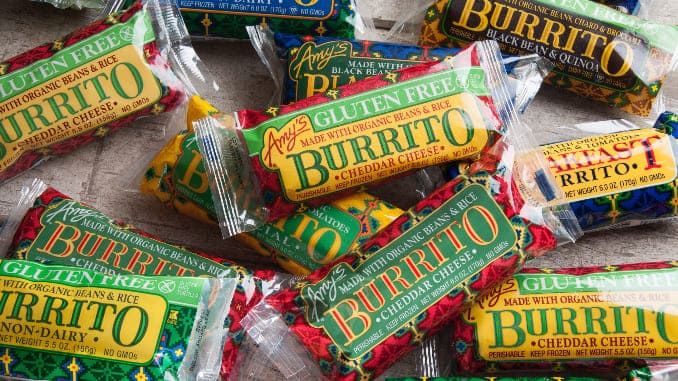The Amy’s Kitchen Plant Closure Amidst Unionization Efforts Highlights Common Alleged Anti-Union Tactic
Photo by Amy's Kitchen
Efforts to unionize workplaces, particularly in the food production space, have exploded onto the scene in the last few years as workers, many of whom were forced to keep showing up to their jobs despite the pandemic, push for more equitable wages, benefits and treatment. And unsurprisingly, companies are pushing back—hard. While union-busting is technically illegal, some corporations pay big money to lawyers who know how to skirt the law while breaking up unionization efforts.
It now appears as if some corporations are embracing store closures as a method of preventing unionization. Amy’s Kitchen, a vegetarian food brand known for its frozen meals, which was accused of poor worker treatment earlier in the year, has recently made headlines again with news of its recent production facility closure in San Jose. The company blamed the closure on financial issues, with Fred Scarpulla, Chief Culinary Officer, telling SF Gate, “With the inflation that’s going on, we had a huge increase in costs.”
But workers and advocates are calling bullshit. Despite reports of recently renovating the building and hiring new workers at the plant, the operation was shut down as workers held meetings with union organizers. They can’t help but to think that their efforts to organize are what really prompted the closure.
“If [Amy’s] wants us to believe that the damage they’ve done in the lives of these workers, the damage they’ve done to San Jose, my community, had nothing to do with these workers trying to get just some basic rights for themselves, then I hope the company proves it and that they prove it by making sure that all the workers at all the other facilities that work for Amy’s know that they are fine with them unionizing, they will not interfere and that they’re going to let go of their union-busting lawyers,” said lauren Ornelas, founder and president of the Food Empowerment Project, which called for a boycott of Amy’s products earlier this year.
But Amy’s isn’t the only company that has shuttered its doors during worker attempts at unionization. A Chipotle location in Augusta, Maine, closed its doors shortly after its workers decided to form the company’s first union, and a similar event happened at a New York Starbucks in the midst of a union drive. Many view these actions as retaliation tactics.
In 2021, No Evil Foods, a vegan company also known for its frozen meals along with its socialist-adjacent marketing, also shuttered its doors after a unionization effort that was effectively busted. Jon Reynolds, a former employee of the company who claims that he was fired for his efforts to unionize, found that this sort of activity was a part of a pattern: “It’s really interesting to see it all being repeated. And I that’s the most interesting part, I think, for everything that’s happening right now with Amazon, with REI, with Amy’s, with Starbucks. It’s the same stuff, just over and over, and it’s exactly what we went through. It’s just being copied and pasted, and it’s incredible.”
-

-

-

-

-

-

-

-

-

-

-

-

-

-

-

-

-

-

-

-

-

-

-

-

-

-

-

-

-

-

-

-

-

-

-

-

-

-

-

-








































